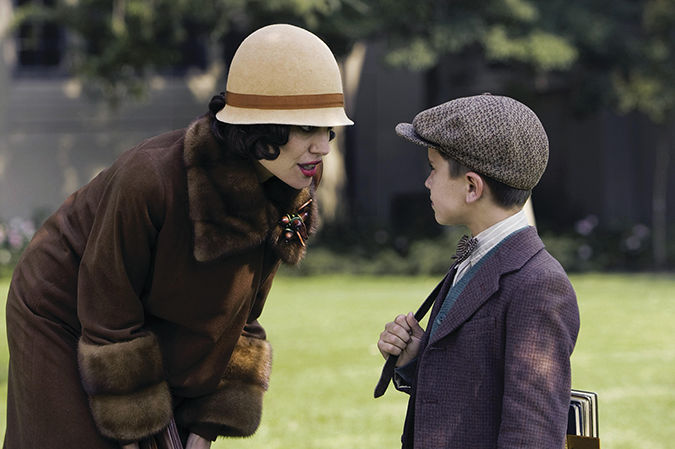When Pope Gregory the Great singled out the seven deadly sins, he was quick to also identify Seven Cardinal virtues as a kind of moral counterweight.
Certainly many modern movies lack morality, but viewers can find these virtues at the box office. I see these virtues — faith, hope, charity, fortitude, justice, prudence and temperance — exemplified by the following seven characters: Tom Hank’s Oscar winning performance in “Forrest Gump” is nothing if not an exercise in faith. Forrest Gump takes everything to heart with a simple, unswerving faith that is mocked by some, misunderstood by others and deeply felt by a select few. The faith he carries throughout his life and throughout a series of incredible adventures through history is child-like, yet it moves mountains and brings out the best in other characters, whether it’s the crusty but salvageable Lieutenant Dan or the tragic Jenny.
A penitentiary is not the most likely place where one thinks they are going to find temperance. But Morgan Freeman’s Red Redding character in “The Shawshank Redemption” is certainly a strong, resilient and in his essence a temperate person.
This trait is the only way he has managed to survive for so long in such a hostile environment and is a pretty strong argument for how something that society may look upon as a weakness can be a great strength.
“Regarding Henry” isn’t the biggest box office success in Harrison Ford’s career, but it is a great example of the virtue of fortitude. His character begins as a top of the food chain trial lawyer with all the trimmings — prestige, money, power, broken marriage.
But in an instant it all changes when he becomes the victim of a violent crime and is debilitated to the point of helplessness. Ford’s Henry must rely on his wife and he must have stupendous amounts of fortitude to not only heal physically, but emotionally and spiritually, which is the tool that fortitude was meant to be.
The character of Willy Wonka as played by Gene Wilder was strange. The character of Willy Wonka as played by Johnny Depp was off the charts in weirdness. Yet, despite the hair, the teeth the oh-so-odd complexion and fixation on all things junk food, Depp’s Wonka was a person of great prudence, especially when it came to determining an heir to inherit his chocolate factory.
And Charlie Bucket, the eventual inheritor of the domain, is chosen precisely because of all the prudence he demonstrates while keeping free from the grasp of chocolate rivers and body altering confectionary. The fate of the other not-so-prudent golden ticket holders is not so happy.
An actor with such a long track record of action roles may not be the first choice as an example of justice, but Bruce Willis’ performance in “The Sixth Sense” is nothing but a search of that elusive virtue. His character seeks justice for the young man he couldn’t help at the beginning of the film. The Willis character’s tireless attempts to provide peace and justice for not only the Haley Joel Osment character, but for the dead people he sees, makes this film a perfect candidate for the justice file of the seven cardinal virtues.
Though Dustin Hoffman received the raves for his portrayal in the movie “Rain Man,” I would venture that Tom Cruise, of all people, showed the most range in this film. Let’s face it, Dustin Hoffman’s character did not change one iota throughout the entire arc of the story. It is Tom Cruise whose character transforms before our eyes.
Cruise’s character begins the film as a man obsessed with his own needs and desires and a man with an almost wrath-like resentment for the imperfect family he was burdened with. It is only when he sees his “special” brother in a deeper way that he begins to act in the purest form of charity — to give without expectation of repayment. “Rain Man” is incapable of tangibly “paying back” his brother for his kindness, which makes the charity displayed in this good movie all the more poignant.
“The Changeling,” a film directed by Clint Eastwood and starring Angelina Jolie, is at times hard to watch. The story of a single mother living in 1920s Los Angeles, Jolie’s character experiences the greatest fear any parent can conjure … the abduction of her child.
The plot twist, based on a true story, involves the mother, played by Jolie, convinced that the son returned to her is not actually her son. More twists and turns ensue and when it appears her son was the victim of a serial criminal, all in the cast give up hope.
Despite so much evidence to the contrary, she refuses to relinquish hope — a hope that sustains the character to the end.
Pope Gregory the Great probably didn’t have box office stars in mind when he first wrote down the virtues, but it is comforting that centuries later, in unlikely places, they still abide.

